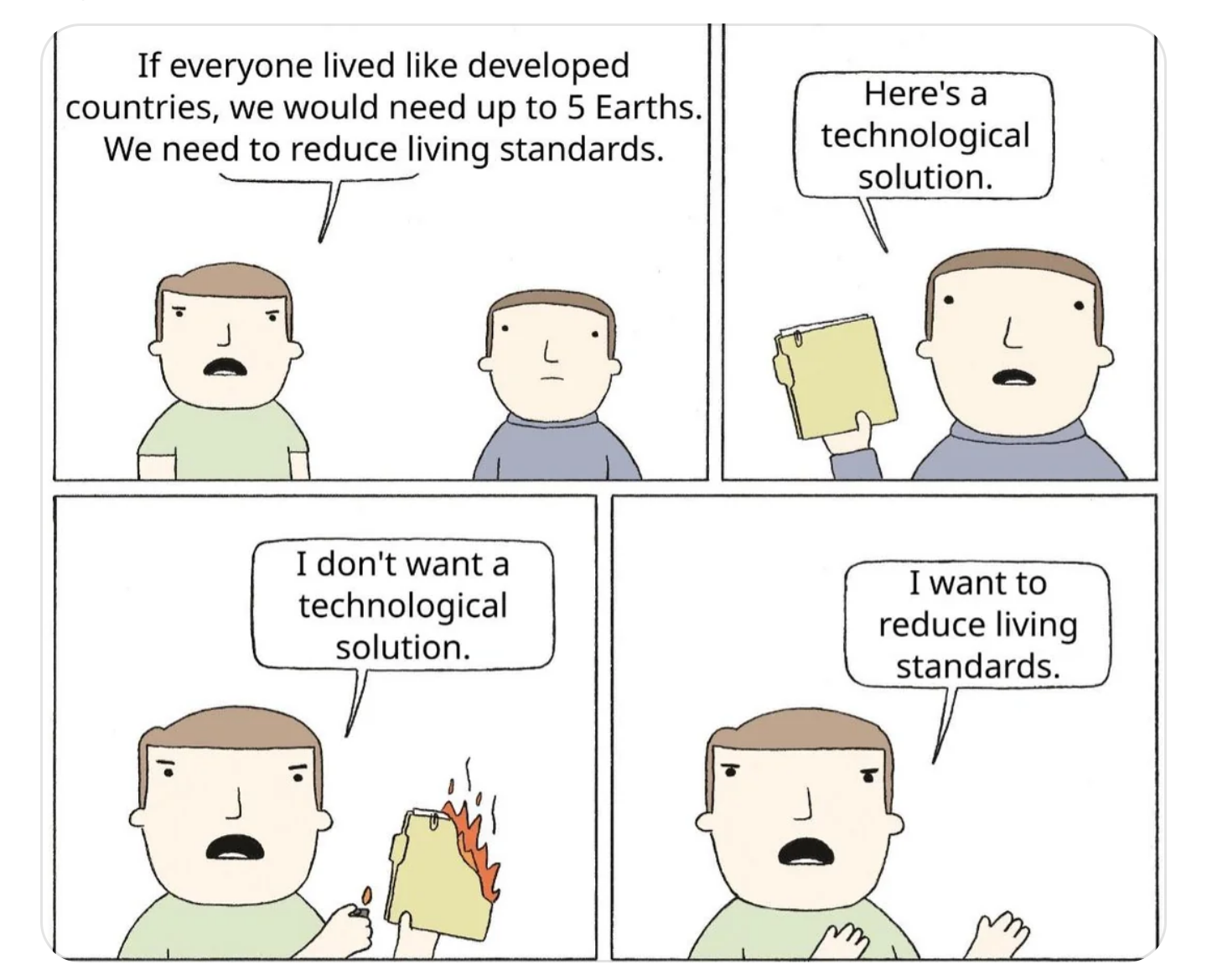I both agree and disagree, because this comic is dangerously vague.
A good example is electric cars. It would be great if everyone switched to electric cars, but it would be even better if we built a city that didn't treat pedestrians, cyclists, and public commuters as second class.
The difference being the latter doesn't let private equity make fat returns.
And yes ofc we can both.

